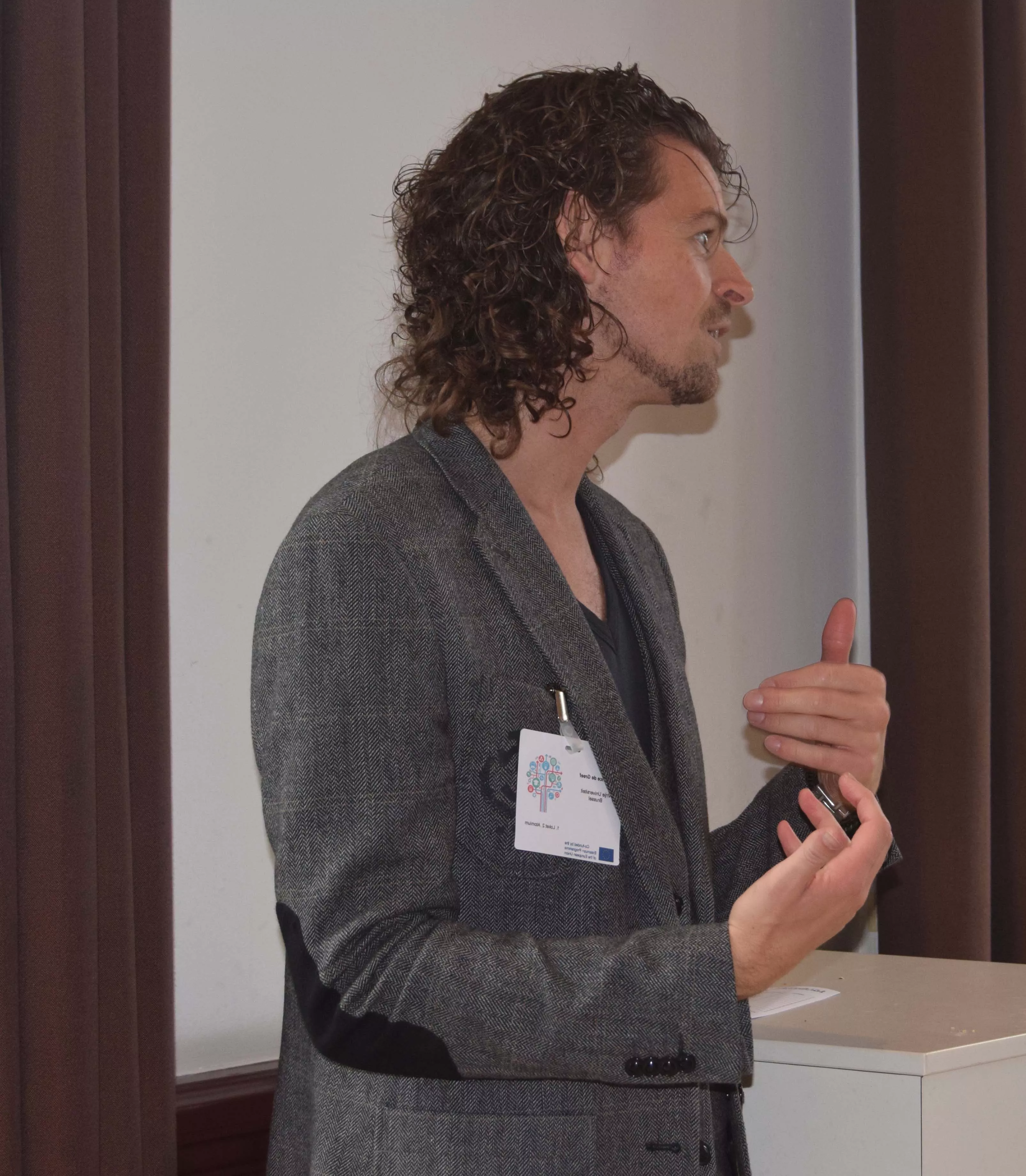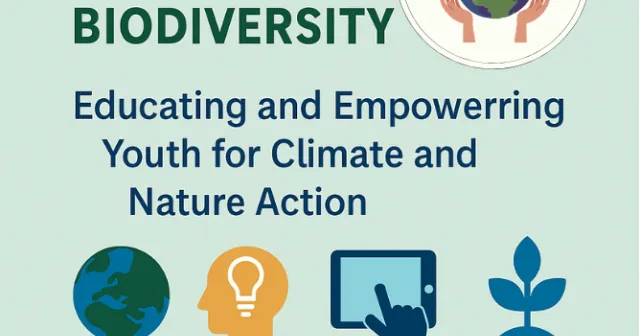New UNESCO Chair aims to demonstrate the impact of adult education


In collaboration with UNESCO and the Flemish Commission for UNESCO in Belgium, Prof. Maurice de Greef will be implementing the new UNESCO Chair of Adult Education on behalf of Vrije Universiteit Brussel (VUB). The Chair was established under the UNITWIN/UNESCO Chairs Programme. The inaugural speech will take place on Friday 28 September in Brussels. EPALE talked to Professor de Greef about filling this prestigious Chair.
EPALE: What led to you implementing this new UNESCO Chair of Adult Education, based at the VUB? How exactly did this come about?
Maurice de Greef: In our society there are still groups of vulnerable individuals who are at risk of poverty and social exclusion. And in many countries in the world there are still vulnerable adults who do not or cannot access adult education. So it is crucial that strategies that promote social inclusion and employment for these vulnerable adults are developed and embedded. I had talked to the Netherlands National Commission for UNESCO about these issues back in 2016 and they asked me to write a plan for the Chair because they recognised the importance of adult education. The reason the Netherlands National Commission for UNESCO asked me to do this was because over the course of the years my colleagues and I have undertaken some 70 studies in this field. I wrote the plan at that time, but because I work for Vrije Universiteit Brussel, it was submitted by the Flemish Commission for UNESCO. So, the Chair will involve a team of people from Maastricht University and the VUB. We will also set up an advisory group of experts who will explore with us what we can do, because it’s important to make use of existing expertise in the field.
Could you explain briefly what the plan includes?
The plan comprises five pillars. We want to do (even more) quantitative research to demonstrate the impact of adult education. We want to show people the benefits of adult education, both for the participants themselves and for those around them.
We will also endeavour to coordinate research in different aspects of life. We once undertook a literature review where we looked at the areas in which literacy plays a role. We identified six areas of life: work, care & healthcare, family, digital literacy, financial literacy, and last but not least: everyday life. For example: imagine that a street organises a safari supper, where neighbours cook for each other. And at the end of the event, they suggest making a recipe book. If you can’t read and write, you wouldn’t be able to take part.
The third pillar focuses on whether we can do more to help special target groups access adult education, such as people who have Dutch as their mother tongue, because they are known to be difficult to reach.
We also want to look at how we can help policymakers translate research results into policy. Because often there is a discrepancy between the two. A great deal of research is done, but not all of it is converted into policy. We want to change that.
And, finally, we want to try and develop innovative approaches to adult education, which make it attractive (or more attractive) to specific groups of adults.
Will you also work with centres for basic and adult education?
In the Netherlands we’ve already been doing so for a long time, with the regional training centres (ROCs) and private education providers. We work with around 75–80% of ROCs and private providers. In Flanders we must do more in this area. We must work more closely with CBEs (Centres for Basic Education) and CVOs (Centres for Adult Education). For me, this is crucial because that’s where most of the work goes on. So we’re going to look at how we can improve the situation in conjunction with them. We can’t do it on our own.
Does the Chair have a budget?
Yes, there is a budget, but we sourced it ourselves. The Chair gives you the scope and the name but you then have to prove that you can raise a budget. And I will really push for this because I believe that adult education is such an important issue. The budget gives us the scope to implement a number of projects and it also broadens the research capacity, which will enable more innovative approaches to adult learning. Initially the Chair will run for four years but, if it is successful it may be extended.
When will you be satisfied with the results that the Chair achieves?
I want to use this Chair to spread the word about the importance of adult education to as many people as possible. On average, I’m already doing around 30 lectures a year on this issue. I may do even more in the future, because I want to be an ambassador in this field. I want to show that it is important to invest in adult education and that you need to give people access to adult education because it helps them get ahead in life.
Clearly, we are a research institute, so research will always be our core business, but I also really want to try and demonstrate that it’s important that we do something about adult education, especially since we have a knowledge economy. And this is even more pressing in the Netherlands than in Flanders, because in Flanders the infrastructure for adult education is more robust. There have been a lot of cuts in the Netherlands, hence the difference. So, to my mind, we must work really hard to make people aware of the importance and impact of adult education. Everyone must have the opportunity to change their career later on in life by continuing their education. That’s why I look forward to establishing what this Chair will address.
I will be delighted if we can ensure through this Chair that more people in Belgium and the Netherlands understand that adult education is really important and that it is one of the ways our society can empower people and give them the chance to improve their status in society. If policymakers embrace this as a result of our work, I’ll dance on the table (laughs).
The UNITWIN/UNESCO Chairs Programme aims to promote international academic collaboration, amongst other things “to close the ‘knowledge gap’ between the global North and South.” Does this Chair have the same aim and, if so, how do you see it?
With Maastricht University and the VUB, we now have a database in which we have taken a before-and-after measurement for social inclusion for some 6,100 people. This makes us international leaders in this field. I want to make this knowledge accessible to the countries of the South. New Zealand, Australia, the US and the UK, for example, make it quite clear that they have done something in the field of adult education and they have also described what they have done in detail. We must do more in this respect ourselves. In particular, we must describe in more detail, in English, what our research involves and the results that it has produced.
Could EPALE play a role in the work of this Chair and, if so, how?
I am convinced that we must work together. The great thing about EPALE is that you can make knowledge accessible to a large number of partners in a very short time. So if this Chair comes up with something new, we can publish it on EPALE straight away. We can also look at how we can set up knowledge sessions together where we can then deliver our input, at both physical meetings and on the platform.
Prof. Maurice de Greef is guest Professor of ’Leereffecten Laagopgeleiden en Laaggeletterden’ (Learning impacts on adults with a low level of education and literacy) at Vrije Universiteit Brussel and wrote his thesis on the impact of adult education. In conjunction with Maastricht University, he has undertaken 70 studies on the impact and success factors of adult education in over 100 municipalities and eight countries. In addition, he helps institutions and local authorities at local, regional and European level to improve welfare and education services for vulnerable groups in society. He was a member of the board of the Dutch national association of non-formal education and was responsible for the Dutch national conferences on adult education. He was also a member of the board of the Dutch national LVO (Landelijke Vereniging Onderwijsadviseurs, i.e. National Association of Educational Advisers).





Niebywale ciekawa informacja!
Pozdrawiam!